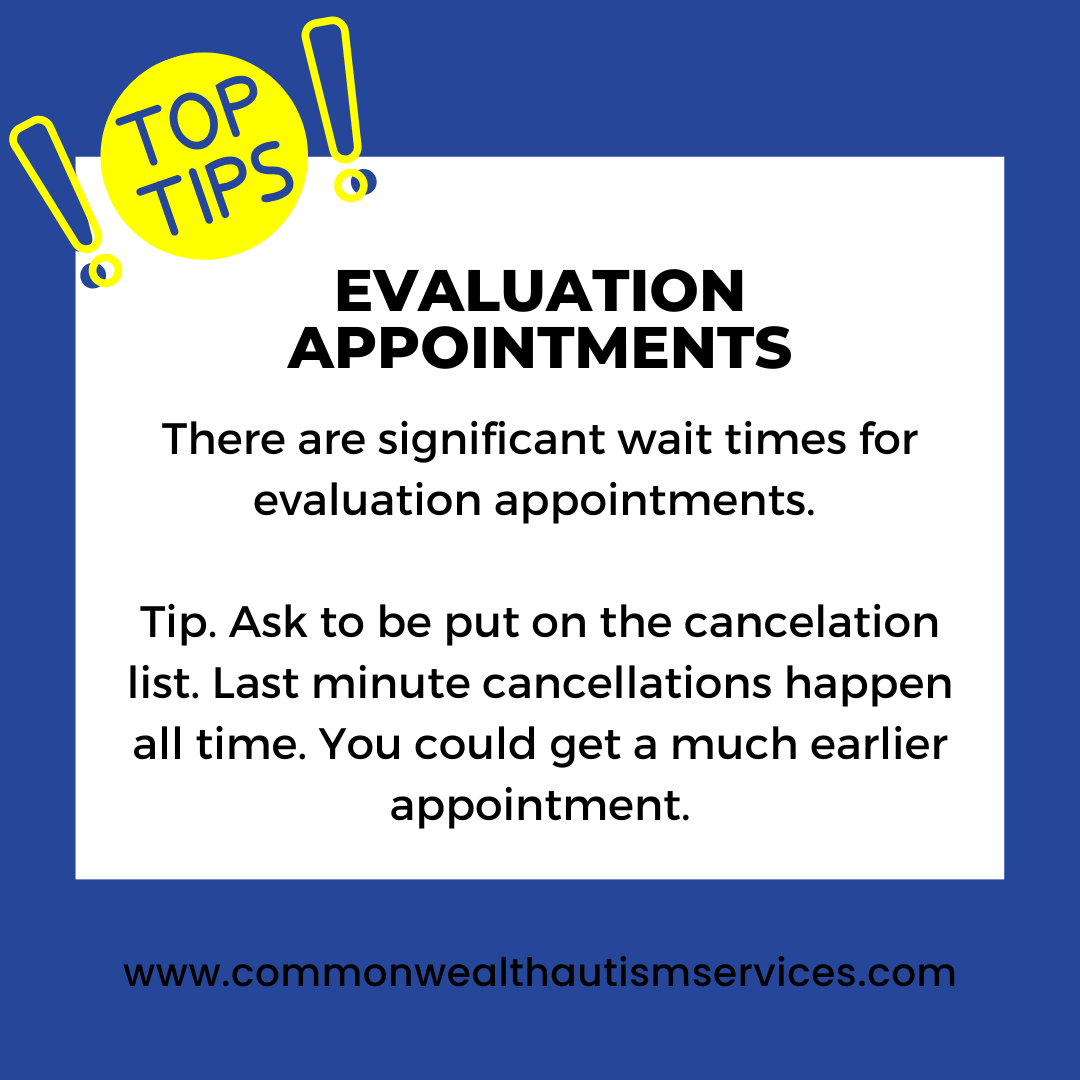Autism Evaluations
If you are concerned about your child’s development and suspect autism, speak with your child’s pediatrician. They can complete screening tools to help decide if you should pursue an autism diagnostic evaluation. They would then refer you to a specialist who can perform an in-depth assessment.
Who can do an evaluation?
It is essential to get an evaluation from an experienced medical professional. These providers include developmental pediatricians, clinical psychologists, and other specialized physicians. To find a local provider, try asking your pediatrician for recommendations, check in with the local children’s hospital, and ask for insurance company for a list of approved providers.
Assessment tools
An autism diagnosis is made in accordance to the criteria established by the American Psychiatric Association’s Diagnostic and Statistical Manual of Mental Disorders, Fifth Edition (DSM-5). The evaluation will include observations, parent/guardian interviews, and assessments of the child’s behavior, communication, and social skills.
There is no one assessment that can detect autism. Medical professionals use a variety of screening and assessment tools during the process. Some of these assessments include:
The Autism Diagnostic Observation Schedule (ADOS)
Modified Checklist for Autism in Toddlers, revised (M-CHAT)
The Autism Diagnostic Interview- revised (ADI-R)
The Ages and Stages Questionnaire (ASQ)
The Child Autism Rating Scale (CARS)
The Child Autism Spectrum Test (CAST)
The Social Communication Questionnaire (SCQ)
Autism Detection in Early Childhood (ADEC)
Gilliam Autism Rating Scale (GARS)
What to expect at the evaluation
The evaluator needs to gather as much information as possible to get a clear picture of your child. Typically, they will begin the day by giving you an overview of what to expect at the appointment. The parent interviews, assessments, and observations will be completed. Evaluations can take up to four hours. Another appointment might be necessary if they need additional information. A few weeks after the appointment, you should receive a detailed report. It will detail the assessment scores, findings, and recommendations.
Tips and Tricks
Some providers have significant long waits for an appointment. It is typically for some offices to have over a year wait. However, there are often cancelations. Ask the office is they have a cancelation list. You could get a call an appointment much sooner.
There are several things you can do to prepare for the appointment. This includes having all the required documents, ensuring insurance authorizations are processed, and having a list of concerns ready. To help make the appointment go smoothly, we have created a printable checklist, concerns and questions list, and note page. Download your free copy below.
Download the Free Assessment Tool Kit
Includes an assessment checklist, questions and concerns form, and appointment notes. Fill out this form for instant access to the forms.



